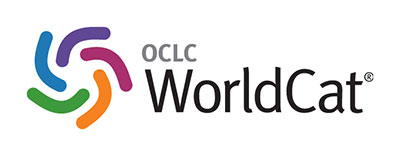Maternal dietary deficit and its nutritional impact on newborns
DOI:
https://doi.org/10.26871/killcanasalud.v8i3.1312Keywords:
Nutrition, pregnancy, fetus, Low birth weight, prematureAbstract
Nutrition during pregnancy is essential for the development and well-being of the baby, with the mother being the main provider of nutrients for the fetus. This article focuses on examining maternal nutritional deficit and its impact on the nutritional status of the newborn. A qualitative-analytical bibliographic study was carried out that included the review of more than 8 relevant sources on this relationship. The results obtained indicate that maternal nutritional deficit has significantly negative consequences for both the baby and the mother. Complications such as anemia in the baby, an increased risk of premature birth, complications during delivery, low birth weight and maternal health risks such as uterine rupture were identified. The importance of addressing this deficit from a preventive perspective is highlighted. This implies the implementation of educational programs aimed at pregnant women to promote optimal nutrition during pregnancy. In addition, emphasis is placed on the need to take effective measures in the field of public health to mitigate the adverse impacts of maternal nutritional deficit on neonatal and maternal health. In conclusion, this study highlights the urgency of concrete actions to address maternal nutritional deficiency and its consequences. Ensuring adequate nutrition during pregnancy is essential to promote the well-being of both the mother and the newborn.
Downloads
References
Cereceda Bujaico María del Pilar, Quintana Salinas Margot Rosario. Consideraciones para una adecuada alimentación durante el embarazo. Rev. Peru. ginecol. obstet [Internet]. 2014 Abr [citado 19/03/2024]; 60(2): 153-160. Disponible en: http://www.scielo.org.pe/scielo.php?script=sci_arttext&pid=S2304-51322014000200009&lng=es.
Del Castillo-Matamoros SE, Poveda NE. Importance of nutrition in pregnant women. Rev Colomb Obstet Ginecol. 2021 Dec 30;72(4):339-345. DOI: 10.18597/rcog.3825.
Diddana TZ. Factors associated with dietary practice and nutritional status of pregnant women in Dessie town, northeastern Ethiopia: a community-based cross-sectional study. BMC Pregnancy Childbirth. 2019 Dec; 19(1): 517. DOI: https://doi.org/10.1186/s12884-019-2649-0
Bu Y, Cai Y, Ji C, Zhao C, Tian C, Pang B, Shi M, Li X, Liu Y, Sun D. Evaluation of iodine nutritional status during pregnancy by estimated 24-h urinary iodine excretion: population variation range and individual accuracy. Public Health Nutr. 2022 Feb;25(2):237-247. DOI: 10.1017/S1368980021003335.
Zamora Cevallos Á, Piloso Gómez F, Coronel Loor G, Ponce Loor W, Arsiniegas Chancay M, Regalado Pincay J. Nutrición y anemia en las gestantes adolescentes. RECIAMUC [Internet]. 2019 [citado: 20/03/2024]; 2(3):212-228. Disponible en: https://reciamuc.com/index.php/RECIAMUC/article/view/
Goudet SM, Bogin BA, Madise NJ, Griffiths PL. Nutritional interventions for preventing stunting in children (birth to 59 months) living in urban slums in low- and middle-income countries (LMIC). Cochrane Database Syst Rev. 2019 Jun 17;6(6):CD011695. DOI: 10.1002/14651858.CD011695.pub2.
Pajuelo J. Valoración del estado nutricional en la gestante. Rev. peru. ginecol. obstet. [internet] 2018; 60(2). Disponible en: http://www.scielo.org.pe/scielo.php?pid=S2304-51322014000200008&script=sci_abstract
Pincay M. Estado nutricional de la madre y salud del niño de 0 a 5 años de edad. Revista ITSUP. 2019; 1(1). DOI: https://doi.org/10.37117/higia.v1i1.509
Ramírez M. Estado nutricional materno y sus efectos sobre el recién nacido, en las usuarias que acuden al servicio de ginecoobstetricia del hospital isidro ayora de Loja durante el periodo enero a junio de 2011. Repositorio de la Universidad Nacional de Loja. 2012.
Hernández J. Alimentación saludable durante el embarazo. Revista médica del departamento de obstetricia. 2018; 54(1).
OMS. Nutrición durante períodos específicos del ciclo vital: embarazo, lactancia, infancia, niñez y vejez. Revista de la OMS. 2018; 1(6). Disponible en: https://www.fao.org/4/w0073s/w0073s0a.htm.
Papezova K, Kapounova Z. Nutritional Health Knowledge and Literacy among Pregnant Women in the Czech Republic: Analytical Cross-Sectional Study. International Journal of Environmental Research and Public Health. 2023; 20(5). DOI: 10.3390/ijerph20053931.
UNFPA. Sistematización de evidencias sobre consecuencias económicas y sociales del embarazo adolescente. Revista UNFPA. 2020. Disponible en: https://lac.unfpa.org/es/publications/sistematizaci%C3%B3n-de-evidencias-sobre-consecuencias-econ%C3%B3micas-y-sociales-del-embarazo.
Martínez Suárez C, Rivero Chau C. Caracterización clínica y epidemiológica de gestantes con diagnóstico de anemia ferropénica. Revdosdic [Internet]. 2022; 5 (2) . Disponible en: https://revdosdic.sld.cu/index.php/revdosdic/article/view/325
Galindo N, Contreras N, Rojas A. Breastfeeding and COVID-19. Gac. Méd. Méx. 2021; 157(2): 201-208. DOI: https://doi.org/10.24875/gmm.20000665.
Heredia S, Cuvi F, Yánez P. Prevalencia de anemia en gestantes de una zona sur andina de Ecuador considerando características prenatales. Revista Anatomía Digital. 2020; 3(2): 6-17. DOI: https://doi.org/10.33262/anatomiadigital.v3i2.1..1251.
Urgell C, Carrillo E. Interventions on Food Security and Water Uses for Improving Nutritional Status of Pregnant Women and Children Younger Than Five Years in Low- Middle Income Countries: A Systematic Review. Int J Environ Res Public Health. 2021; 18(9): 4799-4812. DOI: 10.3390/ijerph18094799.
Celis Y, Gouveia G, Lezama H. Nutrición en gestantes y aumento de peso según estratos socioeconómicos, experiencia en Aragua, Venezuela. Revista de la Universidad de Carabobo. 2018; 2(7). DOI: https://doi.org/10.19230/jonnpr.2496.
Pérez D, Lorenzo Y, González I. Métodos estadísticos en las evaluaciones nutricionales de embarazadas. Revista Ciencias de la Salud. 2021; 5(1): 21-28. DOI: https://doi.org/10.33936/qkrcs.v5i1.2942.
Cuevas L, García A. Magnitud y tendencia de la desnutrición y factores asociados con baja talla en niños menores de cinco años en México, Ensanut 2018-2019. Salud pública de México. 2021; 3(63): 339-349. DOI: https://doi.org/10.21149/12193.
Freire M, Álvarez R. Bajo peso al nacer: Factores asociados a la madre. Revista Científica y Tecnológica UPSE. 2020; 7(2): 1-8. DOI: https://doi.org/10.26423/rctu.v7i2.527.
Kaur S, Ng CM, Badon SE, Jalil RA, Maykanathan D, Yim HS, Jan Mohamed HJ. Risk factors for low birth weight among rural and urban Malaysian women. BMC Public Health. 2019 Jun; 19(4): 539-543. DOI: 10.1186/s12889-019-6864-4
Lozada M, Ramírez L, Chicaiza H, Cajas C. Evaluación del estado nutricional de gestantes universitarias, UNEMI 2018: resultados del plan piloto. Revista Científica de Investigación actualizada RECIAMUC. 2018; 3(1): 483-516. DOI: 10.26820/reciamuc/3.(1).enero.2019.483-516.










